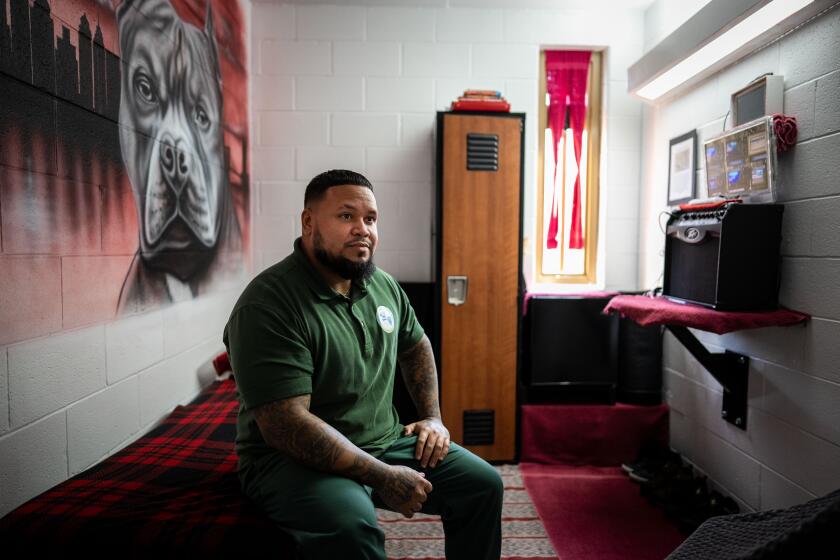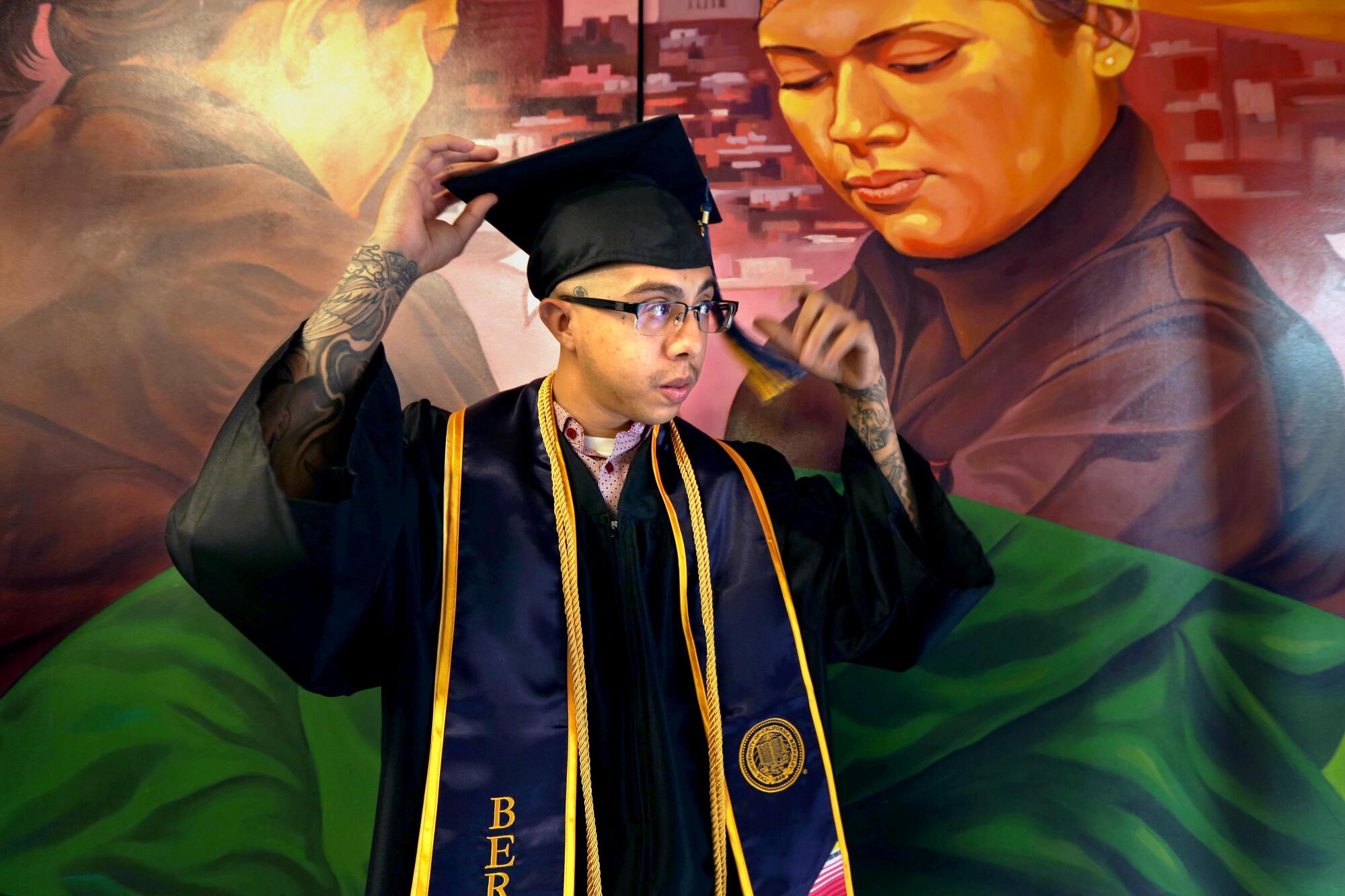
BERKELEY, Calif. — Jessi Fernandez joined a street gang at 13. By his 20s, he had been shot at more times than he could count. He got busted for methamphetamine possession and spent time in Los Angeles County jail for carrying a loaded gun. Yet the persistent danger didn’t wash away a street kid’s dream — that he would get rich as a drug kingpin, then turn legit.
Escapist fantasies became harder to embrace by late 2015, when rivals gunned down two of Fernandez’s closest friends in a few months’ time. The second had lived with him like a brother for at least a year, before being shot down not far from their front door in Boyle Heights. Fernandez, then 22, held 20-year-old “Shorty” as he bled on the asphalt, huddled between two cars.
Fernandez had seen others in his community change paths, often starting out with classes and jobs at Homeboy Industries, the renowned gang rehabilitation program. He’d hung around Homeboy enough to strike up an acquaintance with Father Greg Boyle, the nonprofit’s founder. But this child of immigrants hesitated to throw over the deep loyalties that defined him — to his “homies,” to the streets, to the belief that death or imprisonment for his neighborhood represented a kind of honor.
Shorty’s death helped move something inside Fernandez. After a half-dozen false starts, he returned to Homeboy and asked Boyle for help.
“I decided to place my needs over those of my gang,” Fernandez would later write, in an article (“Scar’d Up but Still Goin’ ”) published in the Journal of Contemporary Criminal Justice. Boyle greeted him with a hug and high hopes, he later recalled. “Sometimes,” Boyle said, “death can be the alarm clock.”
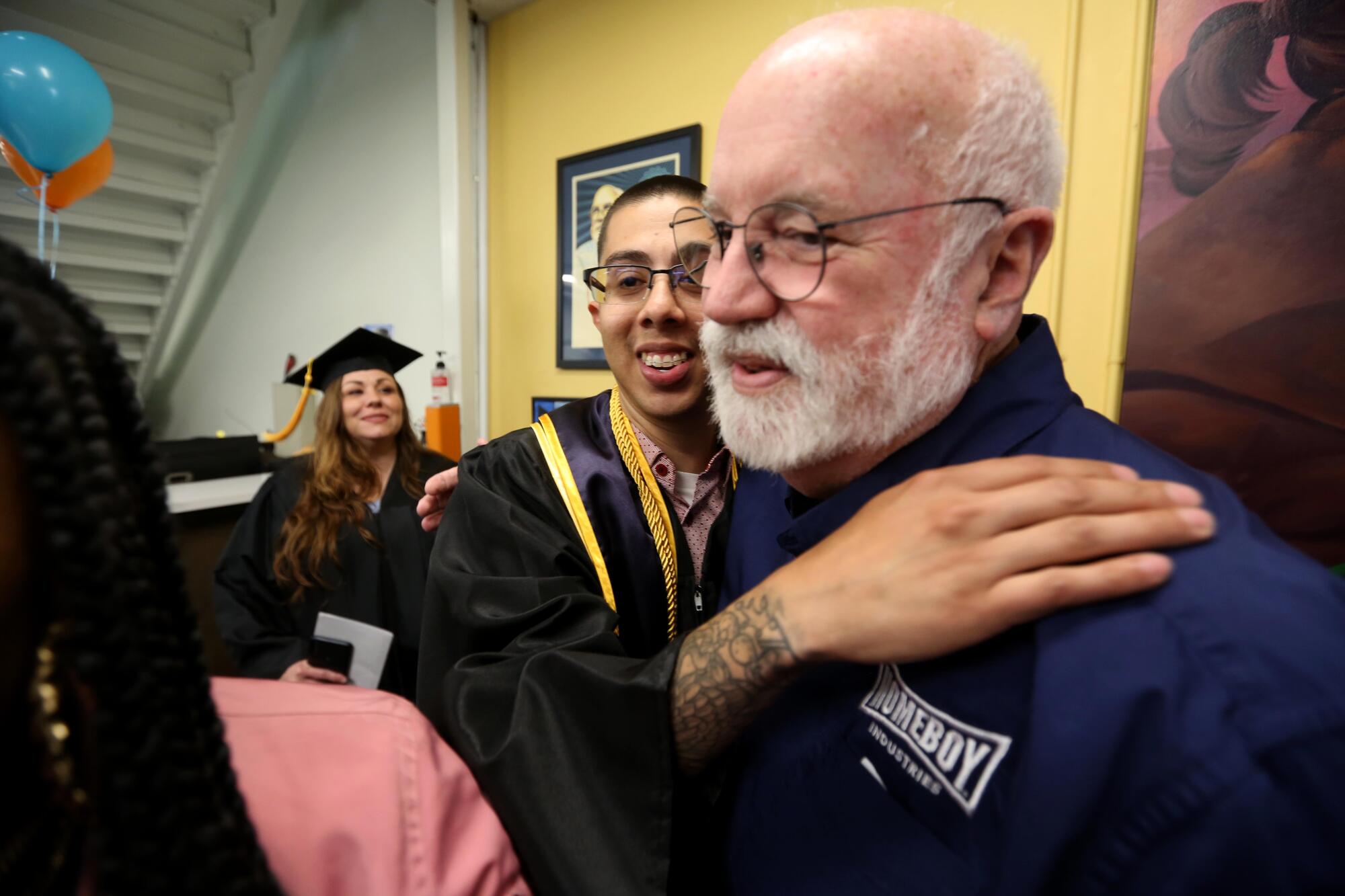
Seven years after that watershed, the Eastside homie named for Wild West outlaw Jesse James would again stride onto the Homeboy campus in Chinatown, on a sunny Thursday in June, this time as an inspiration. Closing in on his 30th birthday, he had come to celebrate his graduation from UC Berkeley. By the weekend, he would board a plane for a summer of study in Spain, his second trip to Europe.
Fernandez has authored a singular resurrection tale that he shared over more than three years of texts, emails and visits with a Times reporter. His journey has been fraught with setbacks, occasional bouts of “impostor syndrome,” friction with a few people who treated him as unworthy and a lingering fear that he might be dragged down by his dangerous past.
This sort of comeback story, once a rarity in California, appears on track to become more common, as the state’s political leaders have turned slowly away from a criminal justice system anchored in punishment to one that claims the goal of rehabilitation. A gradual decline in the state’s prison population has been accompanied by increases in funding for college programs that support those once locked up in jails and prisons.
California community colleges enrolled at least 3,300 students in 2021-22 who once had been behind bars, more than double the number four years prior. In the Cal State system, Project Rebound supported 836 students with criminal records last year, a 173% increase over three years prior. Last year, the program saw its funding from the state triple, to $11.3 million, and its recidivism rate remain at less than 1%, according to the project’s chair, Brady Heiner.
The prestigious UC system did not have a program to support “system-involved” individuals until a decade ago. That’s when a chance meeting between two UC Berkeley undergraduates — both former prisoners from the state’s hyper-secure Pelican Bay State Prison in remote Del Norte County — sparked a shift in mind-set.
The two became friends and soon agreed Berkeley needed a group to support students like them who had been incarcerated and, importantly, to recruit more people trying to find their way outside of prison. The Underground Scholars Initiative was born.
For a time, the group supported itself with fundraising and grants. In 2022, Underground Scholars won ongoing funding from the Legislature — $4 million annually, designed to spread post-incarceration programs to all nine UC campuses. Berkeley continues to lead the way, now supporting about 100 students who have served time in jail or prison.
“We’re working hard to reverse the school-to-prison pipeline and to create a prison-to-university pipeline,” said Azadeh Zohrabi, executive director of Berkeley Underground Scholars, an adjunct of the student group and now a formal office within Berkeley’s Division of Equity and Inclusion.
“We have students in PhD programs, students who are writing books, students who are bringing lived experiences that transform the learning environment,” Zohrabi said. “They are really shaping the spaces they are in as much as those spaces are shaping them.”
Fernandez’s biography didn’t fit the mold of the vast majority of the students bound for one of America’s top universities.
His father had come north from Mexico and his mother from Honduras. They never had a lot of money and young Jessi worried that his mother drank too much, around working long hours, mostly in restaurant kitchens. But he said he still collected “good memories,” roving the neighborhood with friends, playing sports and taking occasional fishing and camping trips.
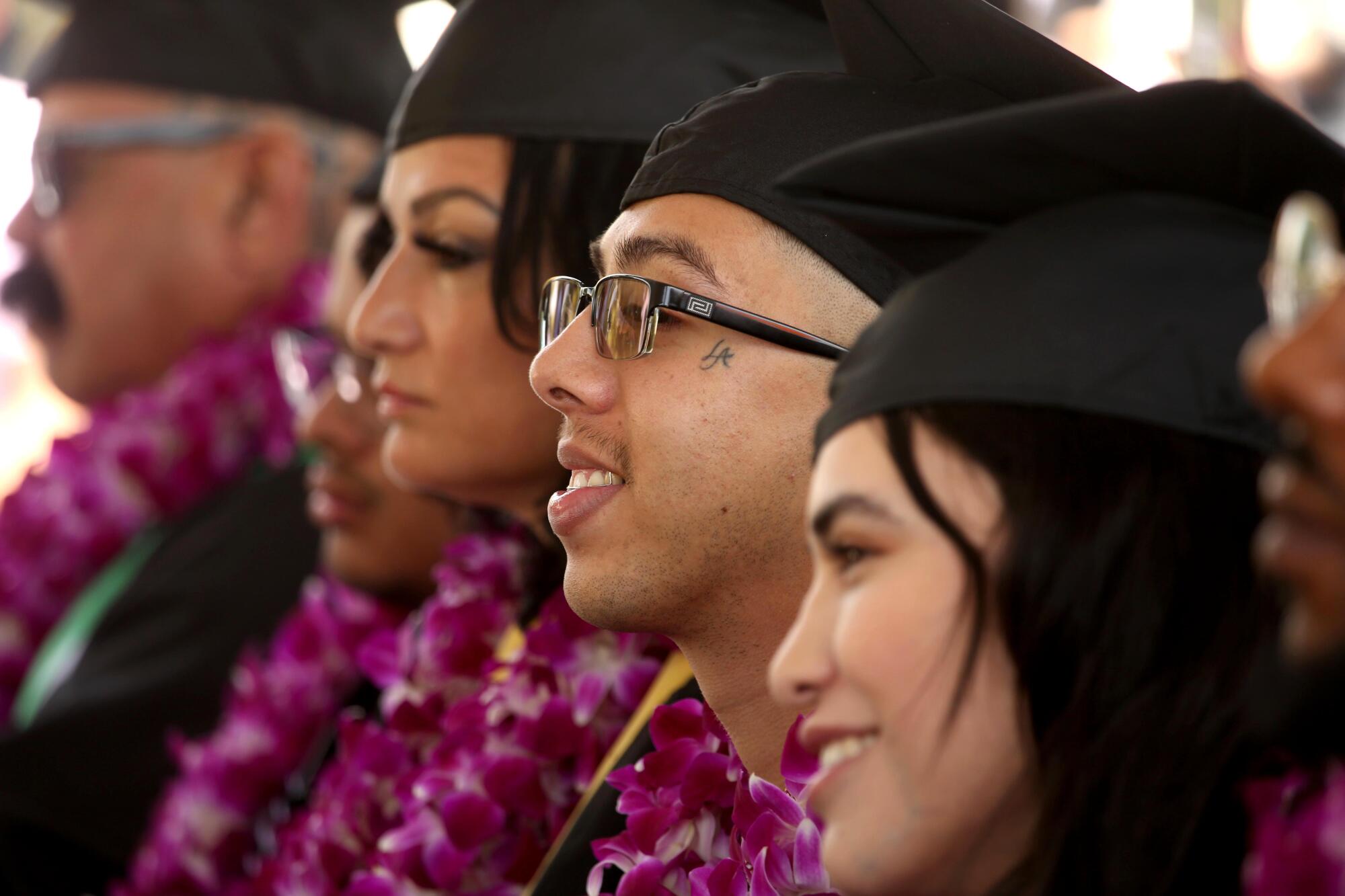
His relatively secure world imploded at age 10, when both his mother and grandmother died. With his father working late hours at an armored car company, often seven days a week, young Jessi and his closest brother did not have much supervision.
Fernandez recalls dumpster diving for cans and bottles that could be redeemed for deposits. He and his friends took to stealing, sometimes clothes, food and hygiene products, or supplies to feed his passion for art. In his code, he drew the line at taking cars or other items that were “simply objects of desire.”
“We were hoodlums in a sense, out of our circumstances,” he said during an interview at his Berkeley co-op in May. “But we looked out for one another. We started building bonds and having that sense of belonging-ness that everyone needs.”
He found high school a refuge, where subsidized meals supplemented the sometimes scarce provisions at home and where, on hard days, he would seek nurturing in the school nurse’s office. “You don’t know what kids are going through at home,” he said. “You don’t know their struggles.”
He recalled teachers expressing surprise that, despite his perceived misbehavior, he was capable of “A” work in the classroom. He graduated from Felicitas & Gonzalo Mendez High School in Boyle Heights in 2011.
But his affiliation with a gang west of downtown (a small world away from his Boyle Heights home) made moving around L.A. increasingly fraught. Many neighborhoods became “precarious” — places he might be shot at, or feel the need to fight. Fernandez estimates he spent up to two years in L.A. County jail for various crimes, frequently weapons possession. His modest good fortune: He never was convicted of a violent felony that would have landed him in state prison.
But his homies continued to die.
On a Tuesday evening a couple weeks before Christmas in 2015, he and Shorty were chilling at the Fernandezes’ modest home, not far from USC Medical Center.
Shorty, whose given name was Mitchell Maya, appeared to be on a roll. Just three days prior, he had hosted a “barber battle” in Highland Park, with a crowd of stylists squaring off in a showdown that fellow homies raved about. He intended to take his licensing exam a few days later, and dreamed of opening his own shop.
Fernandez teased him about how subservient he had become to his girlfriend, with whom he now shared a baby boy. He was heading out to see them and intended to stop on the way to get her something from Starbucks.
A minute or so after Shorty stepped outside the house, the gunshots began.
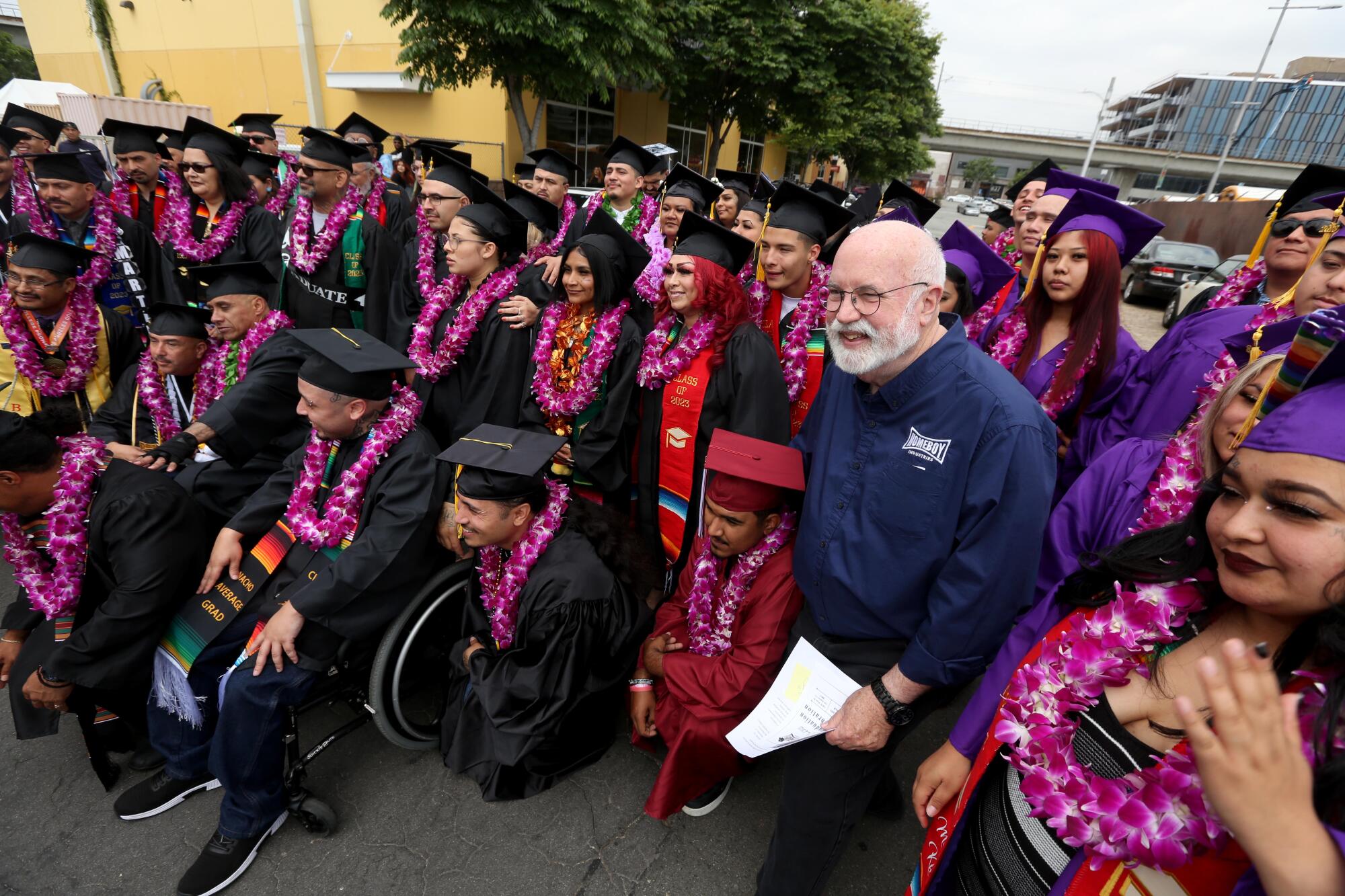
Father Boyle saw Fernandez at Shorty’s funeral. The padre had always had a warm spot for the young man with a sly sense of humor and delicate “LA” tattooed beside his left eye. He told Fernandez it was time to come back to Homeboy, a decades-old program that has become a model for redirecting gang members though vocational education, paying jobs, counseling and tattoo removal.
Fernandez expressed interest but not a true resolve, the priest recalled.
The next time Boyle saw Fernandez at Homeboy he was not encouraged, because Fernandez had arrived “deep,” street slang for surrounding himself with other homies.
“The other guy with him was kind of hard core and didn’t seem serious” about changing his ways, Boyle recalled. The duo returned to Homeboy four or five times. Each time, Boyle would smile (and even palm them a $20), but tell them firmly: “You two are coming in here deep, because you’re weak.” They needed to stand on their own to show they were ready for change.
Fernandez didn’t like being challenged. But he later said Boyle had been on the mark. “He’s the kind of guy who never turns you away completely,” Fernandez said, “but he reads through your bullshit, too, you know?”
On his sixth visit, Fernandez came to Homeboy headquarters alone. He agreed to regular drug testing and Boyle offered him a job at Homeboy, where he eventually worked in the bakery, cafe and education office. His wingman drifted away and soon landed back in prison.
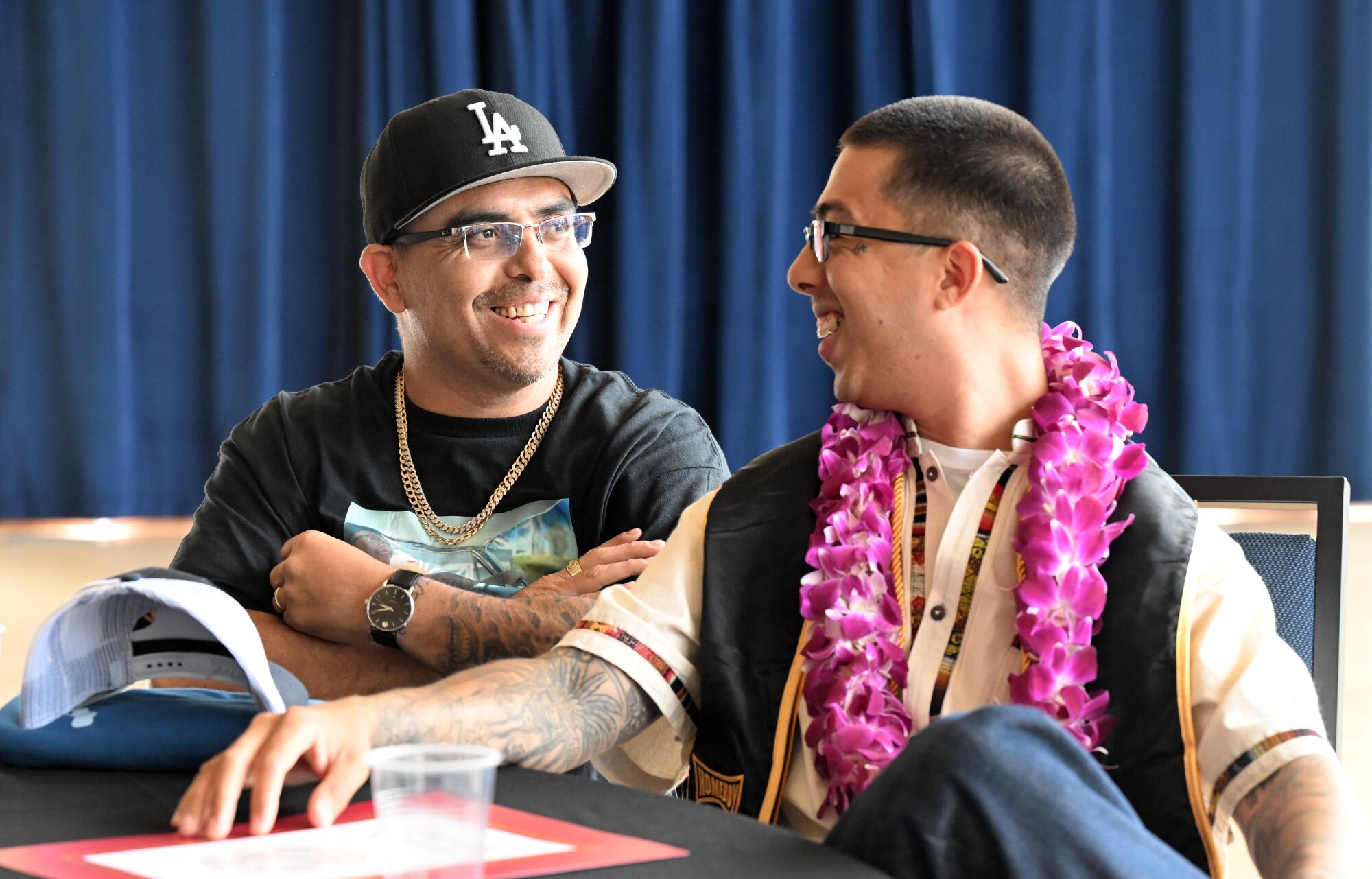
Homeboy Industries got to work on Fernandez. Its staff won him amnesty on $6,000 in unpaid traffic tickets, knocking his debt down to $200. He received mental health counseling and braces for teeth so crooked, he once told Boyle, “that they looked like they were throwing gang signs.”
Eventually, he would become an aide for Boyle, a Jesuit priest who preaches that the life of every individual is defined by more than the worst thing he has done and that the world gets better when everyone, gang members included, treats one another with “extravagant tenderness.”
The 60-something priest and his young acolyte grew closer, with Fernandez embracing Homeboy’s ethos of all for one and one for all. Fernandez took to calling Boyle “Old Fart.” The padre returned the favor with “Young Fart,” even entering the nickname as Fernandez’s contact in his cellphone.
Other homies told Fernandez that to make real progress, he needed to look up a “crazy white lady” in Homeboy’s education office. If Brittany Morton was crazy, it was only for making sure that young men and women from disadvantaged backgrounds got every educational opportunity.
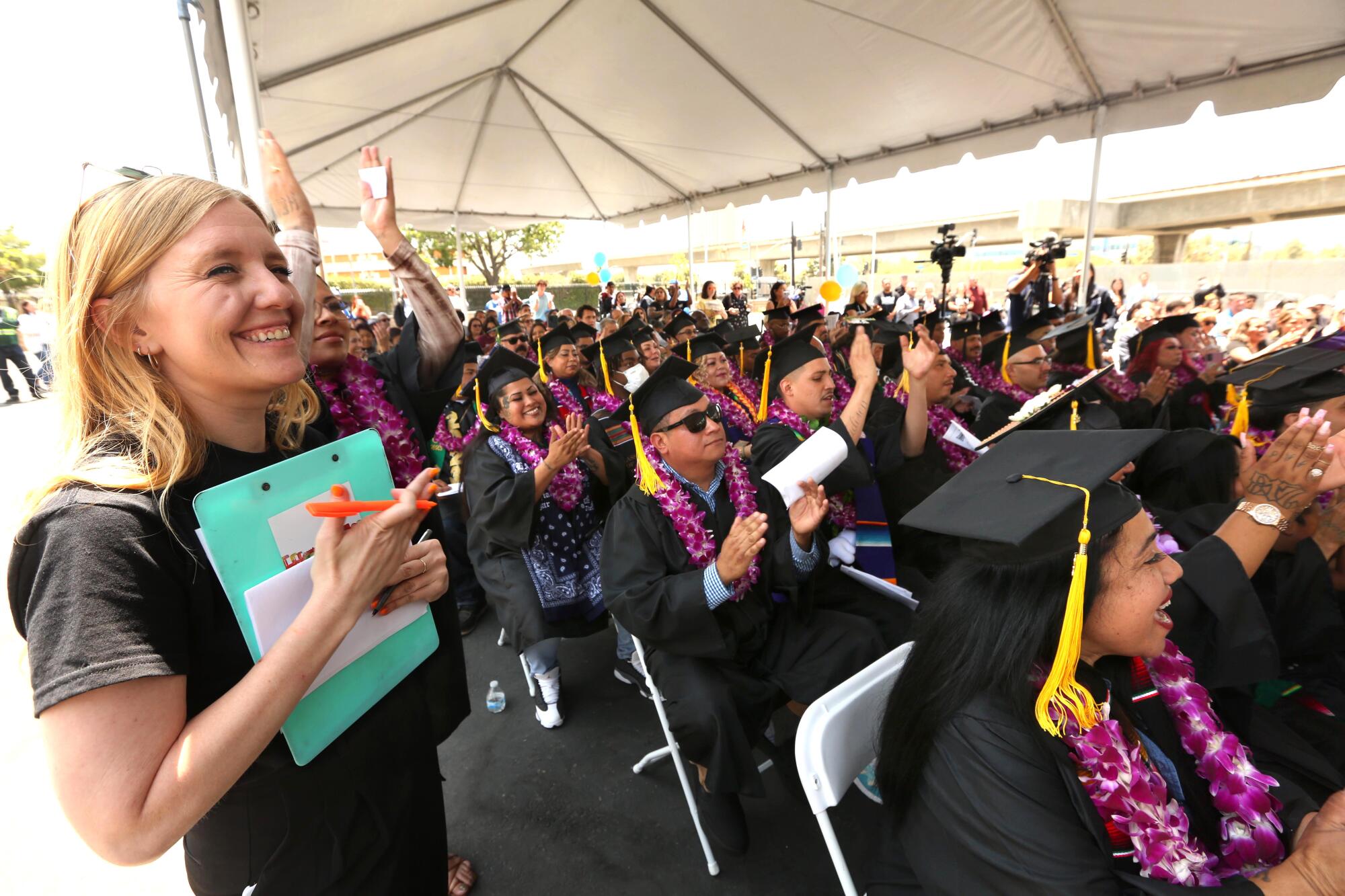
She came at the soft-spoken Fernandez with relentless enthusiasm, even when he wasn’t sure he was ready to move forward. She helped him enroll at Pasadena City College and found him tutors. “This was a pivotal point,” Fernandez later wrote, “where I surrendered to allow myself to receive mentorship.”
The Pasadena college had started a group for “system-involved” students called Community Overcoming Recidivism through Education. Fernandez made friends there and met his girlfriend, Cecilia Elena Bachmann, a young woman who worked with the group. A German national, Bachmann would become another crucial ally.
And Morton was not done pushing. She found a program that would enable him to attend a Pasadena City College program at the University of Oxford in England. She started a GoFundMe and raised $10,000 to help the son of Boyle Heights and another student take classes at one of the oldest universities in the world.
He returned to America with top marks, an uncanny knack for a British accent and a growing belief that he could do bigger things. “He got a deeper understanding of the power that he’s always had,” Morton said, “and the knowledge of how he can grow in the world and how he can also contribute to the world’s growth.”
For the record:
10:09 a.m. July 15, 2023In a photo caption in an earlier version of this article, it said Jessi Fernandez was hugging Nancy Ruiz after his graduation ceremony at Homeboy Industries in Los Angeles. He was hugging Emily Chapa.
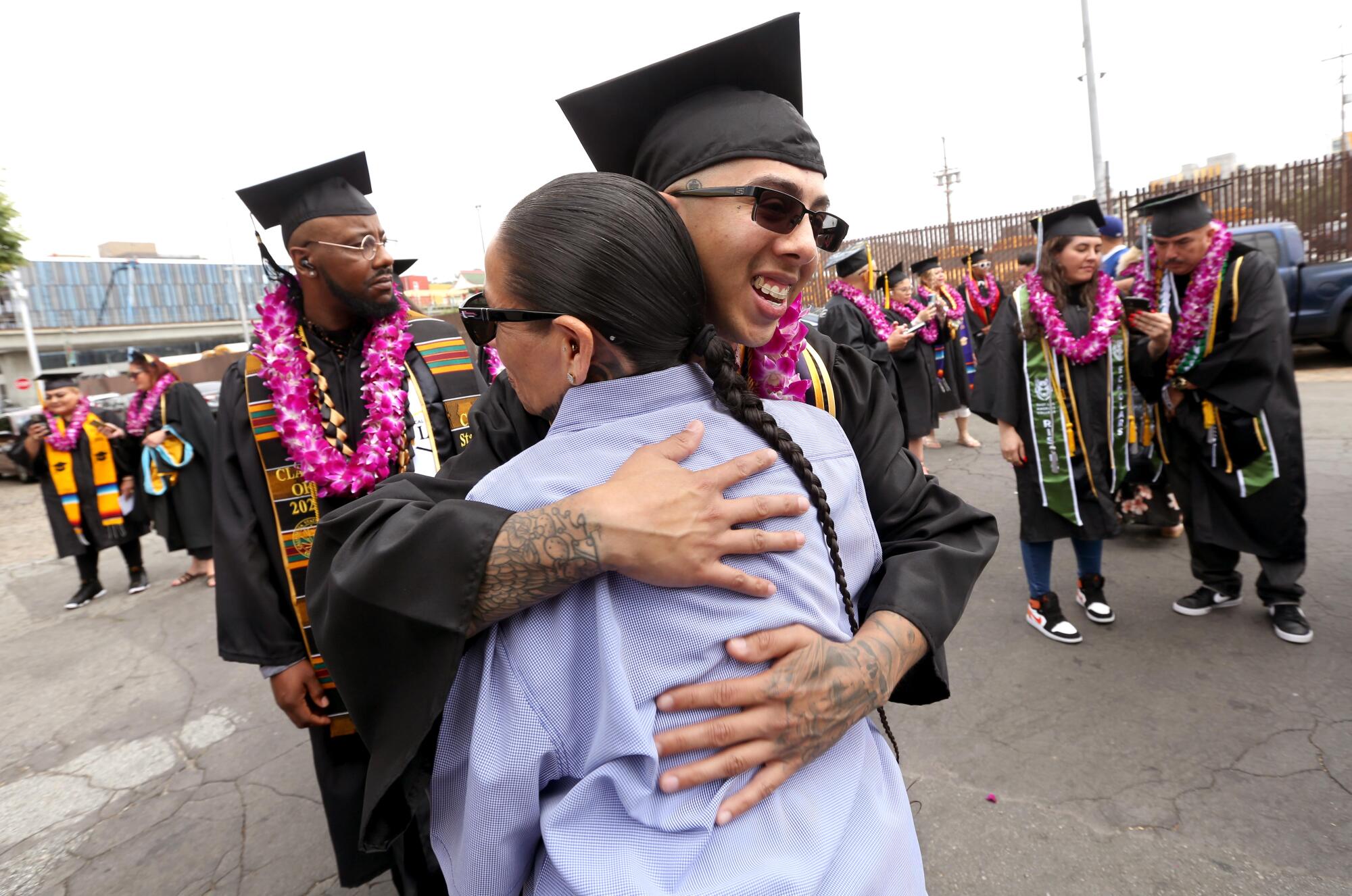
Like other Homeboy success stories, Fernandez increasingly talked about paying it forward. He worked in the education office with Morton and helped other homies complete college applications. At his desk, he displayed a report card with all A’s, alongside an exam he failed.
“To show that we are not perfect and we can get off track,” he explained. “And to help us remember to ... have the ganas [desire] to apply ourselves.”
After earning three AA degrees at Pasadena City College, Fernandez applied to three of the UCs.
He’d been accepted at two by the time Berkeley was announcing its admissions. Not near a computer, Fernandez sent Morton his online credentials. She logged in and called him with the news. “I hate to have to be the one to tell you this,” she teased Fernandez: “It looks like you are going to be moving to the Bay Area.”
Gov. Gavin Newsom this week will announce plans to remake San Quentin, one of the state’s most storied prisons, using a Scandinavian prison model that emphasizes rehabilitation.
Admitted to the academic home of Joan Didion, Jerry Brown and a raft of Nobel laureates, Fernandez arrived for the spring semester in January 2020. His new home was a city that he would sometimes find colder — literally and figuratively — than the sunny metropolis where he grew up.
Morton and girlfriend Bachmann helped move him into his room at the People of Color House, a co-op not far from Memorial Stadium, where the Golden Bears football team plays. Team Jessi found his basement room a bit dreary, but dressed it up as best they could.
Then they left. “I was like, man, this is for real now,” Fernandez recalled. “I’m just really on my own, you know?”
Within weeks of his arrival on campus, the world began to shrink in the face of the COVID-19 pandemic. From one end of a Zoom screen, the alien world of Berkeley became even more difficult to get to know. Fernandez wondered how he could justify staying enrolled in a school nearly 400 miles from Boyle Heights, when his father and brother were scraping to put food on the table.
“I feel like tapping out and going back to the streets,” Fernandez confided during his first year on campus, saying he often believed his real duty was to “go back and make all this money and really provide for my family.”
But when he mentioned those misgivings, his support crew would hear none of it. One staunch ally was Osmin Sosa, another Boyle Heights homie paralyzed from the chest down after being caught in gang crossfire. Sosa, 43, who works in the tattoo-removal office at Homeboy, offered not only loyalty but occasional infusions of cash when Fernandez, living largely on scholarships, came up short.
“When I felt like going back to the street, it was homies like him that said, ‘Aw, hell no,’ “ Fernandez said, “ ‘You got a future. You keep going.’ ”
A gang member knows more than a little about loyalty and alliances. Fernandez made sure he had both in Berkeley, seeking out compatriots via Underground Scholars, signing on with a nonprofit in Oakland that also worked to support former gang members and finding a roommate and confidant in Kevin McCarthy, a white man previously affiliated with a Latino gang in Orange County.
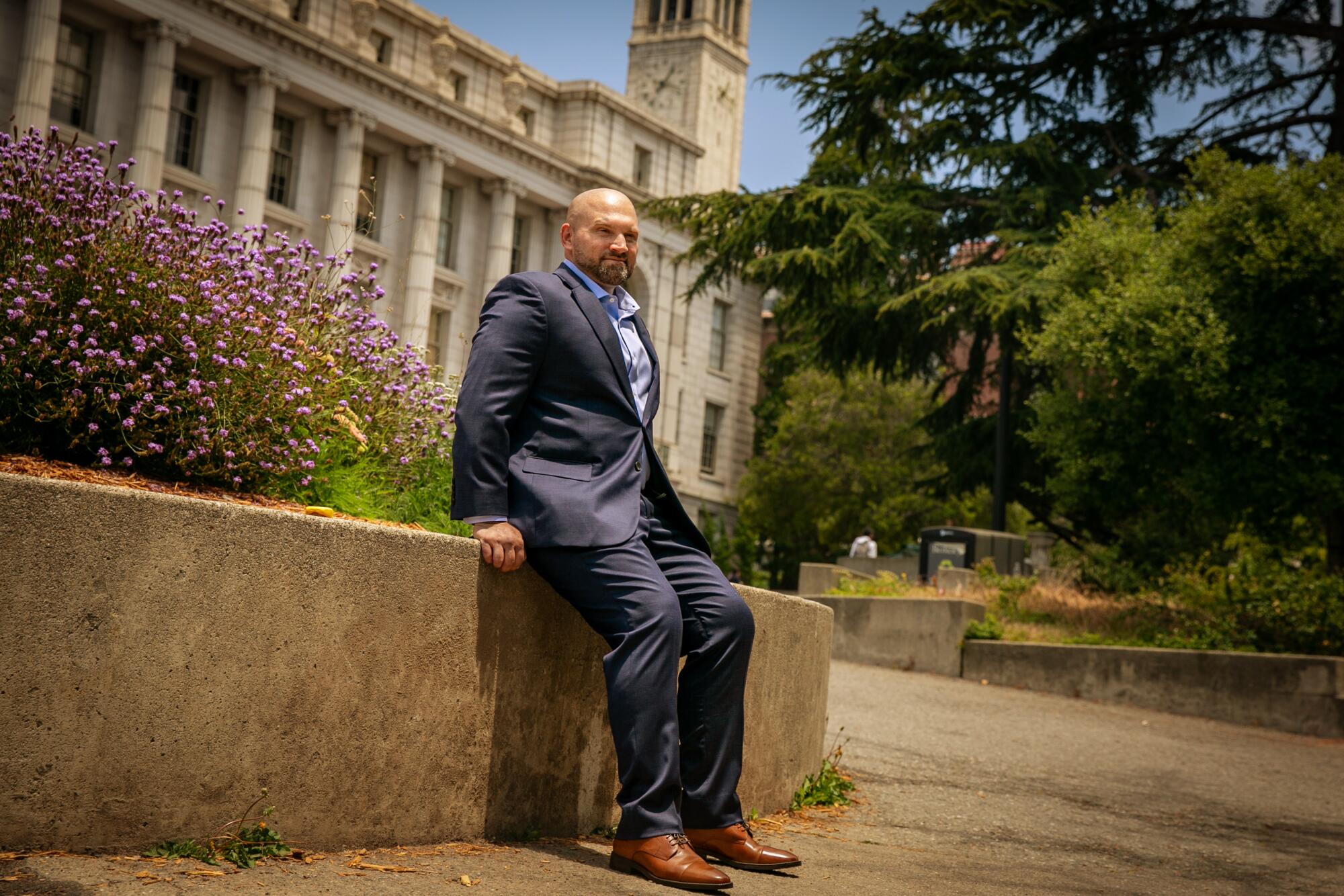
McCarthy had served more than 20 years in state prison, including a decade in solitary confinement at Pelican Bay. Most of his sentence stemmed from an a case in which he was originally charged with attempted murder but later convicted of attempted voluntary manslaughter, McCarthy said, “because of the reasonable belief of the need to use force to defend oneself.”
“He was someone I could relate to,” Fernandez said. “I didn’t have to explain any of my slang or PG my conversation. And he put 20 years behind associating with people like me and with my culture.”
McCarthy assumed he would become like an older brother to Fernandez but ended up finding solace, often during late-night bull sessions. “I think he helped me much more than I helped him,” McCarthy said. “He is definitely wise beyond his years.”
Fernandez found an academic mentor in Pablo Gonzalez, a professor in the Ethnic Studies Department.
Though he majored in sociology, Fernandez liked the way Gonzalez had his students work cooperatively, often on novel projects, such as designing a children’s book that showed how young people in one Oakland neighborhood were trying to preserve their culture. Fernandez thrived in these communal efforts, celebrating everyone’s contributions, his professor said.
And friends described Fernandez’s fearsome work ethic. While some undergrads plotted their next parties and attended football games and pep rallies, the homie from L.A. hunkered down to study, even on Friday and Saturday nights. He spent time in 14 different libraries over three years on campus.
Gonzalez, the winner of multiple teaching awards, saw an outsider with a “chip on his shoulder,” determined never to fall behind anyone, regardless of their status or privilege. Fernandez wasn’t shy about seeking out professors, grad students and peers to ask for help. He recalled even dreaming about his studies, especially an advanced class on social theory.
“Sometimes you need that kind of attitude in the harsh environment of academia,” said Gonzalez, who taught Fernandez in four classes. “He never came to class without doing the reading, without being prepared. And he always had something to say.”
Eighty-one years after California incarcerated its first ‘ward,’ the state’s notoriously grim youth prison system is shutting down. But will young offenders fare any better in county lockups?
Things outside of class didn’t always feel so easy. Short on cash and sending home as much as he could from campus jobs, Fernandez sometimes skipped meals. He went home at the height of the pandemic and had to find a way to focus on Zoom classes while crammed with five people into a house of less than 1,000 square feet.
And as a heavily tattooed man with brown skin, he felt as though he stood out on a campus that is less than 20% Latino. He recalled walking on campus once with a friend and a group of white students asking, “Y’all go to Cal? Like Cal Berkeley?” Fernandez said his instinct was to “smack the shit out of ‘em.” But he added: “I have more to lose. And to mess it up for some idiot? It ain’t really worth it.”
Other unexpected hurdles rose, like the time he couldn’t figure out how to use his student card to make printer copies. He described how he called out for help from anyone nearby. But in the packed library, no one responded.
His rejoinder to every slight was to urge himself on with an admonition of self-worth: “Pero aqui andamos.” But here we are.
For his thesis, Fernandez turned to a subject close to home: tattoo removal. He interviewed 15 people “stigmatized as gang members” and found most had removed tattoos, particularly on their faces, to enhance job opportunities and to reduce interactions with police. One homegirl described removing the “F— You” she had inked prominently on her face in time to graduate from UCLA this spring.
He chose to keep his tattoos, reminding him of his past. They include on one arm drawings of Shorty and the other homie he lost shortly before he began his reinvention.
While holding on to the old, he did not shrink from the rigors of academic competition. When asked about his journey, he proudly tells people he maintained a 4.0 average at Berkeley. He won an undergraduate award given by the university’s department of Industrial Engineering & Operations Research to just two students who demonstrated “outstanding leadership, service, and commitment to advancing a better world.”
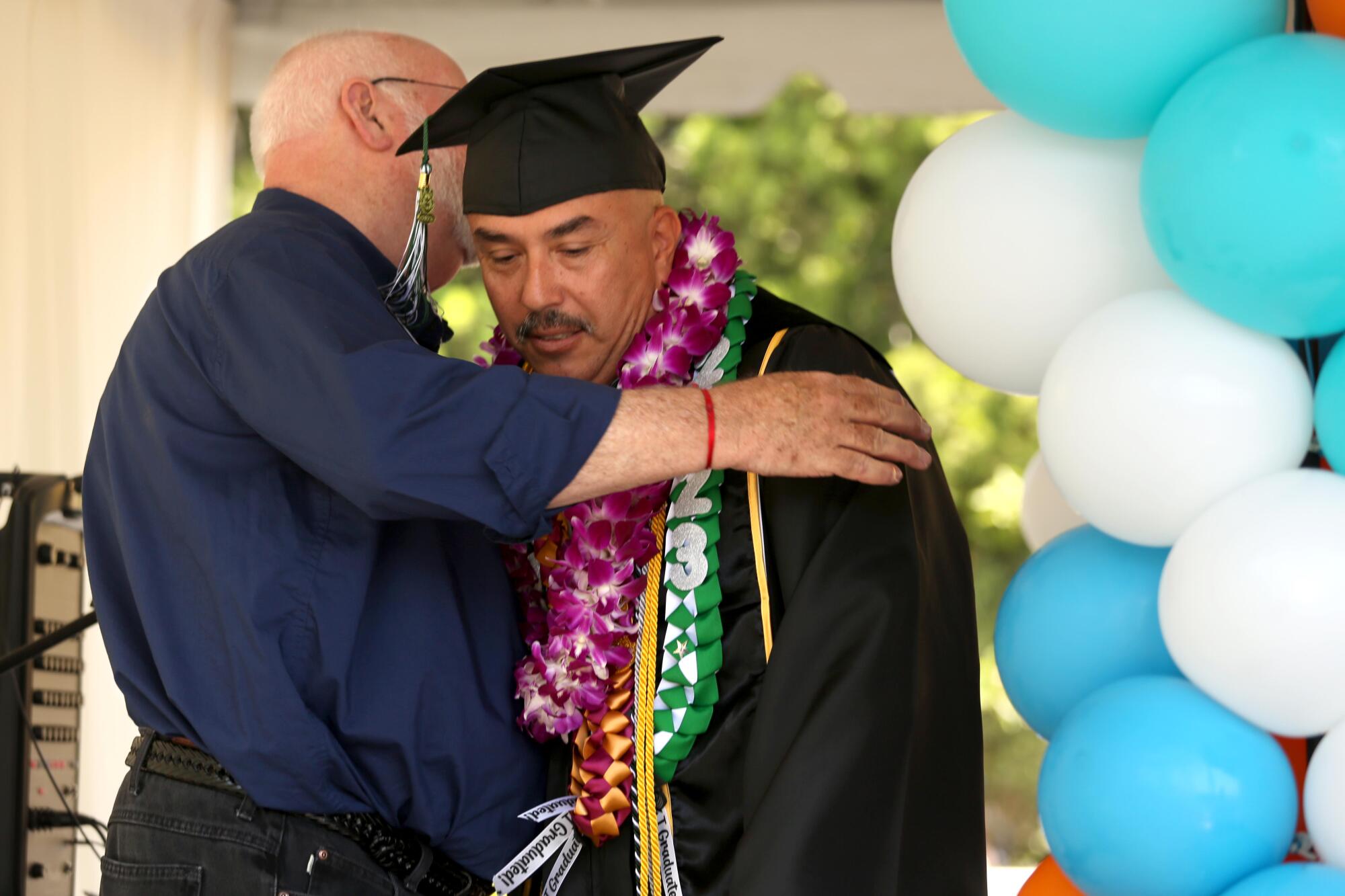
While clearly relishing those honors, he said his greatest thrill came in knowing that others were following his lead. Two more Homeboy students arrived during the 2022-23 academic year. And back in L.A., another Homeboy product, Isaac Gonzales, described how he had transcended his difficult youth despite some people laughing at his college ambitions.
Fernandez helped the 40-something sign up for East Los Angeles College and repeatedly assured him, “You got this.” When Gonzales received three AA degrees this spring and prepared to transfer to Cal State Los Angeles, he thanked Fernandez. “He believed in me when I did not believe in myself,” Gonzales said.
Fernandez needs to earn his final credits this summer to complete his B.A., units he will get through a course he’ll take in Spain with professor Gonzalez, his Berkeley mentor. The class will take him to Madrid and Barcelona, where he will compare challenges faced by trans-Mediterranean migrants with those of people crossing the U.S.-Mexico border.
Fernandez worked on his honors thesis until days before his May graduation at Berkeley. His father watched from the crowd and told his boy afterward: “Your mom would be proud of you.”
Underground Scholars held its own graduation a week later, honoring two dozen students graduating from various programs. Bachmann, Morton and a handful of other supporters made the drive from L.A. for the event.
Fernandez looked slick in a guayabera shirt and neatly creased Levi’s. His braces were off and a black-and-gold “Homeboy Industries” stole draped over his shoulders. The L.A. crew sported T-shirts with a picture of their star behind the wheel of his 1964 Chevy Impala. The caption: “Kept his grades high and his car low.”
They whooped and shouted “That’s right!” when his name was called.
Several of Berkeley’s Underground Scholars addressed the crowd in Pauley Ballroom. With the impossibly green campus looming behind them, they told of drug addiction, broken families and thoughts of suicide. They talked of the brotherhood and renewed hope and wisdom they found behind bars, as one said, “from some of the greatest scholars, who no one will ever know.”
Fernandez told the audience he intended to continue to center marginalized voices, and that he would be applying to pursue a doctorate in sociology. And he quoted a piece of wisdom from Brazilian novelist Paulo Coelho.
“Maybe the journey isn’t so much about becoming anything,” Fernandez said. “It’s about un-becoming everything that isn’t really you, so you can be who you were meant to be in the first place.”
More to Read
Sign up for Essential California
The most important California stories and recommendations in your inbox every morning.
You may occasionally receive promotional content from the Los Angeles Times.
